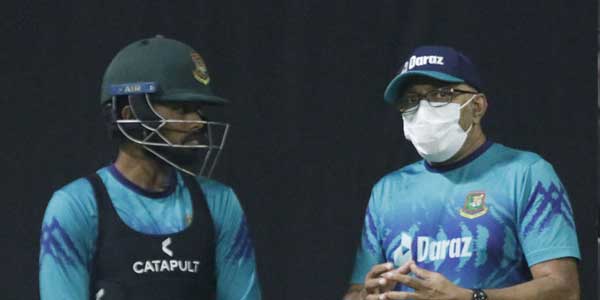As smog enveloped New Delhi, the topic of poor air quality took centre stage ahead of Monday's World Cup clash between Bangladesh and Sri Lanka.
With both teams cancelling practice sessions in the lead-up to the match, concerns loomed over the air quality in the Indian capital.
In the build-up to the game, eliminated Bangladesh faced seventh-placed Sri Lanka, who hold only a slim chance of making it to the semi-finals.
While the sun briefly appeared on Sunday, the filthy air prompted the Delhi government to extend the closure of primary schools until November 10, with online learning suggested for other classes.
Delhi's air quality index (AQI) read an alarming 460 on Sunday. An AQI of 0–50 is considered good, while a range between 400-500 is a danger to those with existing health conditions.
Sri Lanka's coach, Chandika Hathurusinghe, expressed concern about the conditions, saying, "Our doctor is keeping a close eye on the players." He noted that some players, particularly those with asthma, opted to stay indoors rather than participate in practice.
In terms of training, Hathurusinghe mentioned that they were cautious, limiting outdoor exposure to bowling and batting sessions.
While the Indian cricket board banned the use of fireworks in post-match celebrations, the International Cricket Council (ICC) was monitoring the situation in New Delhi.
Hathurusing he acknowledged that the air quality would be challenging for fast bowlers, but he emphasised that team selection would primarily depend on playing conditions, opposition, and the team's strengths.
As the majority of Sri Lankan players donned masks upon arrival at the Arun Jaitley Stadium, skipper Kusal Mendis clarified that they did not request a venue change but sought information on the plans in place. The ICC had informed them of plans to proceed with the match, provided measures were taken to monitor air quality.
Amid concerns over air quality, the match is set to proceed in Delhi, the last of the World Cup matches to be held in the city.



























